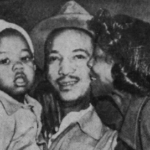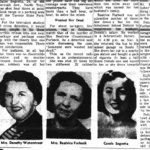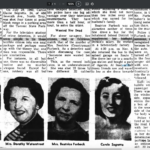Aunt Pie was born into a family of sharecroppers and migrant farmers who had escaped the Jim Crow South, seeking a better life in the North. Her father, a “dirt farmer” with a strong work ethic, had married her mother, who came from a family of means. This union brought together two different worlds, with her mother’s family owning a plantation, Paschal Place in Americus Georgia, that had been passed down through generations, including a rumored connection to President Carter’s family.
Despite the challenges of sharecropping and migrant farming, Aunt Pie’s family was close-knit and resilient. They worked together to overcome the brutal conditions of their circumstances, instilling in Pie a strong sense of determination and resourcefulness.
Tragedy struck early in Pie’s life when she became a young widow, forcing her to rely on her strength and cunning to survive. She found work at a restaurant in a Greyhound bus station in Albany, NY, where she served travelers and locals alike with a warm smile and a generous spirit.
Pie’s story is one of triumph over adversity, of a woman who refused to be defined by the trauma of her past. She rose above the limitations of her circumstances, creating a new life for herself and her family in the North. Her legacy is a testament to the power of resilience, hard work, and the unwavering support of family.














